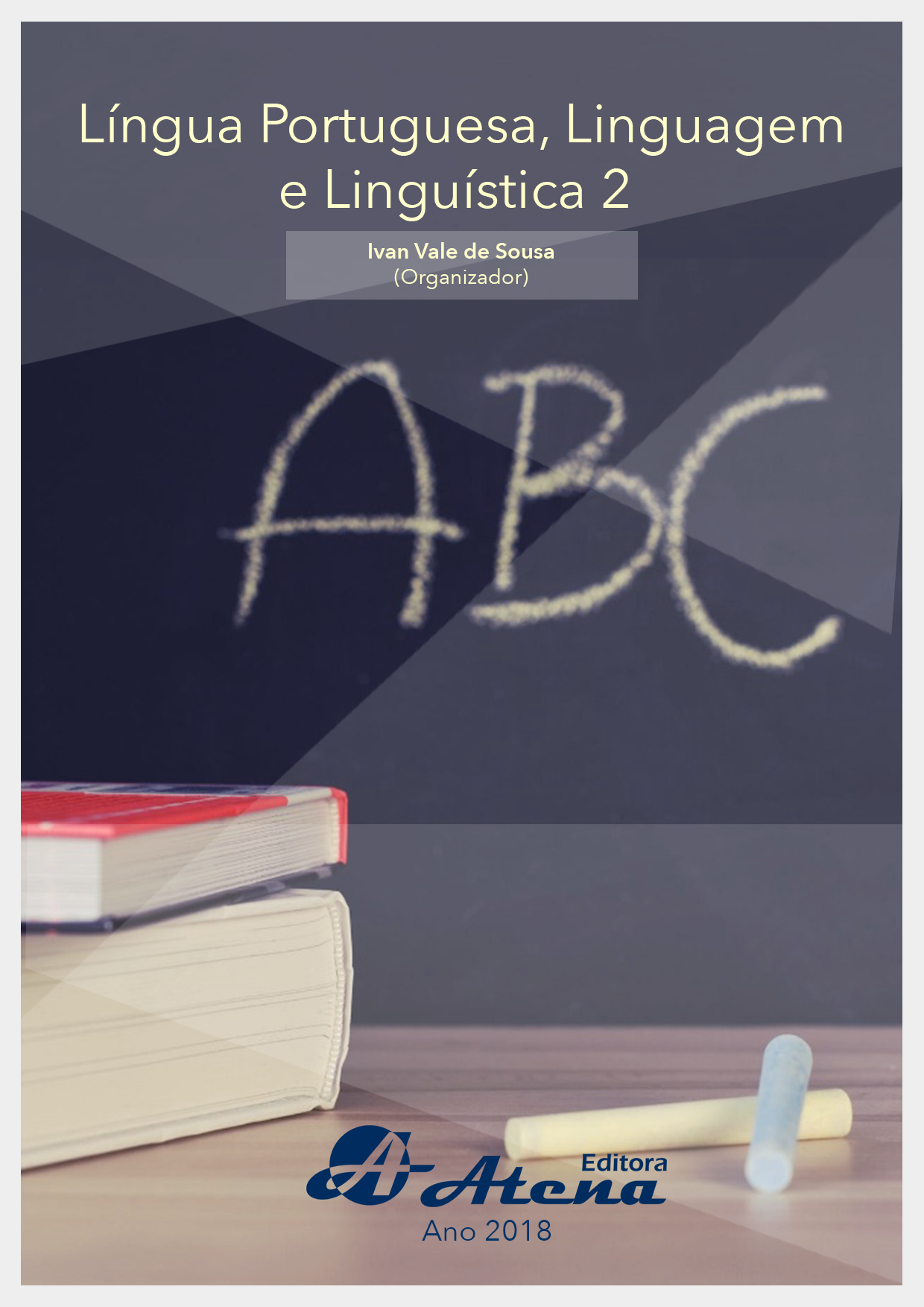
O ENSINO DA LEITURA E O LIVRO DIDÁTICO NA ESCOLA DE EDUCAÇÃO BÁSICA
Este trabalho tem como objetivo
refletir sobre o ensino da leitura na escola de
Educação Básica, como é vista a leitura pelos
professores, e o papel do livro didático, como
protagonista do ensino de leitura. A leitura do
mundo particular do leitor é fundamental para
despertar-lhe o desejo pela leitura da palavra e
ler deve ser uma atividade proporcionada pela
educação que se preocupa com a ética e política.
A leitura deve levar o homem a tornar-se sujeito
da história e não mero espectador, cidadão
capaz de respeitar direitos, cumprir deveres
reivindicar melhorias difundir sua cultura e
construir a História. A metodologia utilizada foi
a qualitativa, e a entrevista estruturada foi o
instrumento utilizado para a coleta de dados, O
trabalho está embasado em Barthes (19840),
Kleiman (1989), Leffa (1999), Travaglia, (2005)
e Zilberman (1997). Estes autores fomentam
a discussão de como a escola precisa tornar
o ensino da leitura significativo para que os
alunos aprendam a compreender e interpretar
o mundo. Necessita também trabalhar textos
que sejam mais significativos para a vida do
aprendiz e para isso deve sair do engessamento
do livro didático. O professor deve usá-lo como
auxílio à sua prática, e não torná-lo o centro do
seu fazer pedagógico.
O ENSINO DA LEITURA E O LIVRO DIDÁTICO NA ESCOLA DE EDUCAÇÃO BÁSICA
-
DOI: Atena
-
Palavras-chave: ensino, leitura, escola livro, didático
-
Keywords: teaching, reading, school book, didactic.
-
Abstract:
This work aims to reflect on the
teaching of reading in the School of Basic
Education, as seen by the reading by the
teachers, and the role of the textbook as the
protagonist of reading teaching. Reading the
reader’s private world is key to arousing the
desire for reading the word and reading should
be an activity provided by education that cares
about ethics and politics. Reading must lead
man to become subject of history and not mere
spectator, citizen capable of respecting rights,
fulfill duties to claim improvements to spread
their culture and build history. The work is based
on Barthes (19840), Kleiman (1989), Leffa
(1999), Travaglia, (2005) and Zilberman (1997).
The methodology used was qualitative, and the
structured interview was the instrument used
for data collection. ). These authors encourage
discussion of how the school needs to make
teaching reading meaningful so that students
learn to understand and interpret the world.
It also needs to work on texts that are more
meaningful for the life of the learner and for this
should come out of the engaging of the textbook. The teacher should use it as an aid
to his practice, not make it the center of his pedagogical practice.
-
Número de páginas: 15
- Célia Jesus dos Santos Silva


